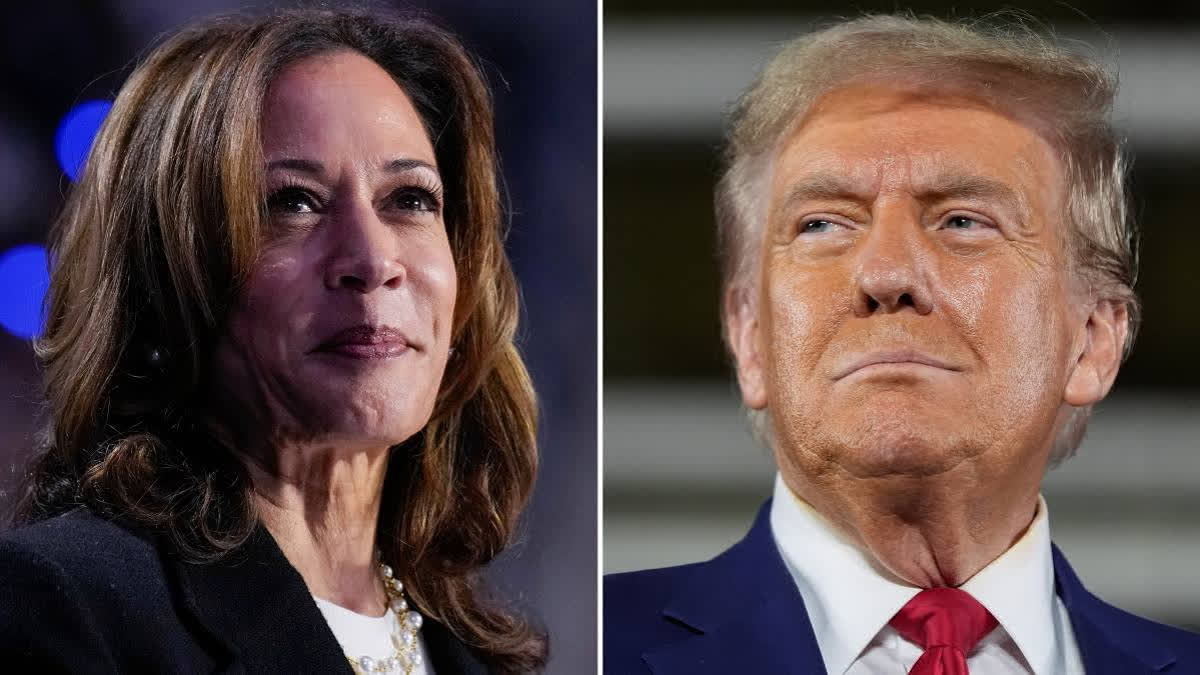New Jersey: In the upcoming US presidential election, the issue of abortion rights is emerging as a significant factor that is influencing Indian American women’s voting preferences.
This demographic group, which is a part of the second-largest immigrant community in the United States, is showing a strong inclination towards supporting candidates who advocate for reproductive rights.
Meeta Damani, an Indian American documentary filmmaker living in the New Jersey area, has been working in the community with a particular focus on women and children.
“It is a crucial issue for both men and women in the Indian American community as well. It is interconnected like if there is a woman and the child is going to be born unhealthy, that is going to affect the entire family. At the end of the day, it is about freedom and one’s choice. I feel the women voters will make their voice very clear,” she said.
Looking at the clarity of thought on this subject among Indian American women, it is not a surprise that abortion and reproductive rights have become a top-tier policy issue in the 2024 election cycle.
Priya, a marketing professional, is also a vocal member of the Indian American diaspora in the New Jersey region. She feels that this shouldn’t even have been an issue.
“Who would have thought that after coming to a first-world country like America, abortion rights would even be an issue for women? If it is my body, it should be my choice. As simple as that. As women voters, if you have the opportunity to support a party that wants to keep your rights intact you will absolutely do that,” she said.
In 2022, the Supreme Court overturned the landmark 1973 Roe v. Wade decision. The ruling ended the constitutional right to abortion, allowing states to ban or restrict abortion access. There were subsequent restrictive abortion laws in various states.
The potential for further limitations on reproductive rights is making it an important issue in the country among women. The majority of the public disapproved of the decision. Many Democratic-led states have taken action to protect abortion rights, and some have become sanctuaries for people seeking care out of state.
Supreet, an IT professional, says that women have been impacted by this in many ways. She also thinks many employers in the US had to find ways to mitigate the challenges that the women workers faced.
“The good part is that a lot of employers are coming up with policies that support women. So even if the company is in a state where it is illegal, they are giving them the means to go to other states. The good part is that corporate America is supportive of women but the government may or may not be. That is why it is important to look at it seriously. I definitely feel the women voters will support the party that is pro-abortion,” Supreet said.
The Indian American Attitudes Survey (IAAS) conducted a nationally representative online survey of Indian American citizens between September 18 and October 15. It has identified a new, striking gender gap in voting preferences.
According to the survey, 67 per cent of Indian American women intend to vote for Kamala Harris while 53 per cent of men, a significantly smaller share, say they plan to vote for Harris.
When further disaggregated by age, this gender gap appears starkest with younger voters. In the cohort above the age of 40, more than 70 per cent of women and 60 per cent of men plan to vote for Harris.
Sonal Sharma, an immigration lawyer working with a lot of Indian American population, has a word of caution to offer. She feels that while women do feel strongly about the abortion issue, it is not the only thing that matters to others.
“It is a complex issue, despite abortion being so sensitive the polls are 50-50 divided. So, one can see it is not the only issue important to people. We however saw in states where the legislature tried to bring more strict abortion laws, those were rejected. We will have to see what happens,” she said.
The importance of abortion rights for Indian American women has not gone unnoticed by political campaigns. Harris has made abortion rights a central part of her campaign strategy and reproductive rights advocacy groups are actively engaging Indian American voters.
In the United States, there are more than 5.2 million people of Indian origin today. It is the second-largest immigrant group in the United States and has emerged as an important political actor. Women form a very significant subset of this unit and as the election draws near, the abortion rights issue is likely to remain a key factor in mobilising and influencing this important demographic.



